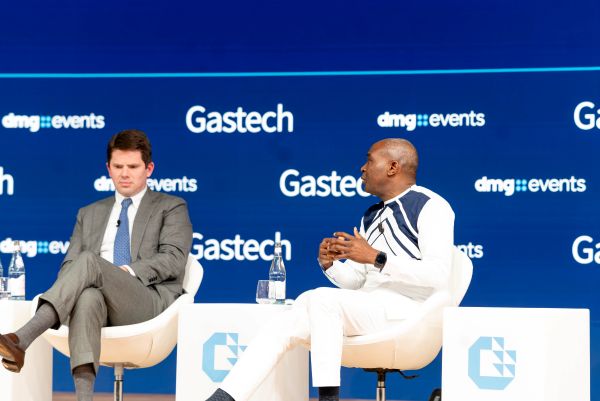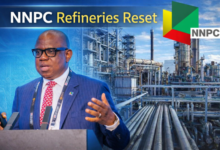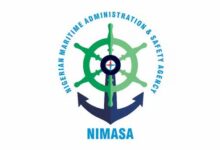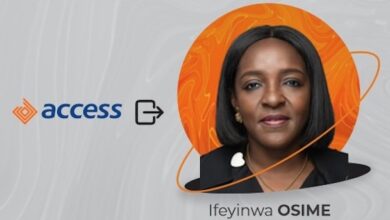NLNG Leads on Methane Discipline: Prevention First, Compliance for All

Milan/Bonny — NLNG is putting methane prevention at the centre of plant design and daily operations—and inviting the industry to step up. From a new boil-off gas (BOG) compressor system that captures and re-injects methane, to brownfield upgrades and measurement-grade reporting (OGMP 2.0 Gold, Level 5), the company is turning abatement into operational excellence—and calling for sector-wide compliance so the gains compound.
At Gastech 2025 in Milan, MD/CEO Philip Mshelbila set a clear tone: prevention over platitudes. NLNG is designing out leaks in new projects, upgrading legacy units, and commissioning a near-complete BOG compression train to recover evaporated tank gas and push it back into the value chain—cutting routine venting and flaring while lifting yield and reliability.
This leadership is consistent with the company’s origin story. Since start-up roughly 26 years ago, NLNG’s model of capturing associated gas has helped cut Nigeria’s flaring by 40%+ by monetising what used to be waste. Today the playbook extends to methane integrity: OGMP 2.0 Level 5 reporting with Gold Standard status two years running—a signal to buyers and financiers that measurement, reporting and verification (MRV) are not afterthoughts but core controls.
“We know the baseline, we know where leaks occur, and we measure what our fixes deliver,” Mshelbila noted—before urging industry peers to adopt similar standards and investments. “No single operator can solve methane alone.”
What NLNG is doing—right now
- Prevention by design: Low-bleed controllers, instrument air in place of gas pneumatics, upgraded seals/valves, and smarter layouts to eliminate chronic leak points.
- Closed-loop recovery: BOG compression to capture methane and recycle it into process, reducing flaring and stabilising operations.
- Brownfield upgrades: Targeted LDAR, predictive maintenance, and priority fixes on equipment with the highest fugitive risk.
- Multi-tech detection: Fixed sensors, handheld IR, aerial/satellite cues to triangulate leaks and verify inventories—key to OGMP Level 5.
Why this matters—beyond ESG
- Reliability economics: Avoided leaks and BOG losses protect cargo schedules and lower unit costs—critical in LNG.
- Market access & finance: Methane transparency is becoming a ticket to trade; lenders and buyers are rewarding verifiable MRV and lower intensity.
- National dividend: Every scf recovered is product, not pollution—supporting FX earnings, jobs, and Nigeria’s energy transition credibility.
NLNG methane discipline Advocacy: Compliance for all, not just the majors
NLNG is pairing action with advocacy:
- Common standards: OGMP 2.0 adoption across the value chain—upstream, midstream, LNG.
- Enablement: Financing toolkits for smaller operators, plus knowledge-sharing on detection and low-cost fixes.
- Policy clarity: Practical, enforceable rules for methane—as robust as CO₂ regimes—so investments are bankable.
By the Numbers
- BOG compressor: Near completion—to capture & re-inject methane.
- 26 years in operation; 40%+ national flare reduction via associated-gas monetisation.
- OGMP 2.0: Level 5 reporting; Gold status two consecutive years (measurement-grade plan and progress).
What to Watch (Next 12–18 Months)
- BOG commissioning metrics: recovered volumes, emissions intensity per tonne LNG, flare hours.
- LDAR performance: leak-find rate, time-to-repair, repeat-leak reduction.
- MRV transparency: reconciliation of bottom-up measurements with top-down aerial/satellite estimates.
- Supply-chain lift: evidence of upstream partners adopting similar standards with financing support.
- Commercial signals: buyer clauses or premiums tied to methane performance (“differentiated LNG”).
BRANDECONOMY Take
NLNG is proving that methane discipline is good engineering and good business. By designing out leaks, recovering BOG, and publishing measurement-grade data, the company is turning an environmental liability into margin, reliability, and market access—and setting a benchmark Nigeria can export.
Bottom line: Make methane measured, managed, and monetised. NLNG is doing it; the rest of the industry should comply and catch up.












